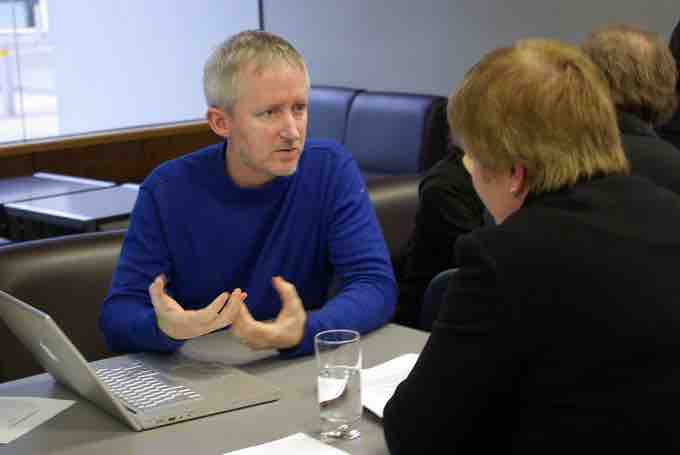An interview, in qualitative research, is a conversation where questions are asked to elicit information, usually pertaining to a product or service, as a means of gaining a better understanding of how a consumer thinks. The interviewer is usually a professional or paid researcher, sometimes trained, who poses questions to the interviewee, in an alternating series of usually brief questions and answers.They are a standard part of qualitative research, in contrast to focus groups in which an interviewer questions a group of people at the same time. The qualitative research interview seeks to describe and the meanings of central themes in the life world of the subjects. The main task in interviewing is to understand the meaning of what the interviewees say. Interviewing, when considered as a method for conducting qualitative research, is a technique used to understand the experiences of others.
Approach to Interviewing
When choosing to interview as a method for conducting qualitative research, it is important to be tactful and sensitive in your approach. Interviewer and researcher, Irving Seidman, devotes an entire chapter of his book, Interviewing as Qualitative Research, to the import of proper interviewing technique and interviewer etiquette. Some of the fundamentals of his technique are summarized below.
Listen
According to Seidman, listening is both the hardest as well as the most important skill in interviewing. Furthermore, interviewers must be prepared to listen on three different levels: they must listen to
- what the participant is actually saying,
- the “inner voice” or subtext of what the participant is communicating, and
- the process and flow of the interview, so as to remain aware of how tired or bored the participant is.
The listening skills required in an interview require more focus and attention to detail than what is typical in normal conversation. Therefore, it is often helpful for interviewers to take notes while the participant responds to questions or to tape-record the interviews themselves to as to be able to more accurately transcribe them later.
Ask Questions
While an interviewer generally enters each interview with a predetermined, standardized set of questions, it is important that they also ask follow-up questions throughout the process. Such questions might encourage a participant to elaborate upon something poignant that they’ve shared and are important in acquiring a more comprehensive understanding of the subject matter. Additionally, it is important that an interviewer ask clarifying questions when they are confused.
Respect Boundaries
Seidman explains this tactic as “Explore, don’t probe.” It is essential that while the participant is being interviewed they are being encouraged to explore their experiences in a manner that is sensitive and respectful. They should not be “probed” in such a way that makes them feel uncomfortable or like a specimen in lab. If too much time is spent dwelling on minute details or if too many follow-up questions are asked, it is possible that the participant will become defensive or unwilling to share. Thus, it is the interviewer’s job to strike a balance between ambiguity and specificity in their questions.

Conducting your interview
Be respectful and practice active listening to get the most out of your interview time.
Avoid Leading Questions
Leading questions are questions that suggest or imply a particular answer. While they are often asked innocently, they risk of altering the validity of the responses obtained as they discourage participants from using their own language to express their sentiments. It is instead preferable that interviewers ask open-ended questions. For example, instead of asking “Did the experience make you feel sad?”, it would be better to ask “How did the experience make you feel?” which suggests no particular feeling.
Don’t Interrupt
Participants should feel comfortable and respected throughout the entire interview—thus interviewers should avoid interrupting participants whenever possible. While participants may digress in their responses and while the interviewer may lose interest in what they are saying at one point or another it is critical that they be tactful in their efforts to keep the participant on track and to return to the subject matter in question.